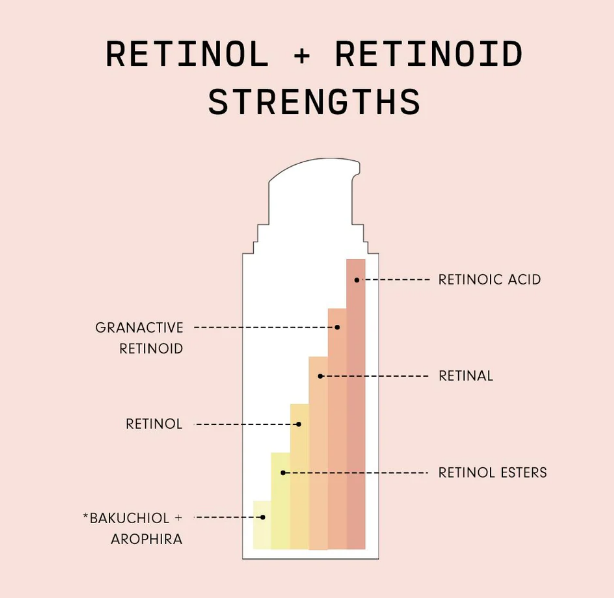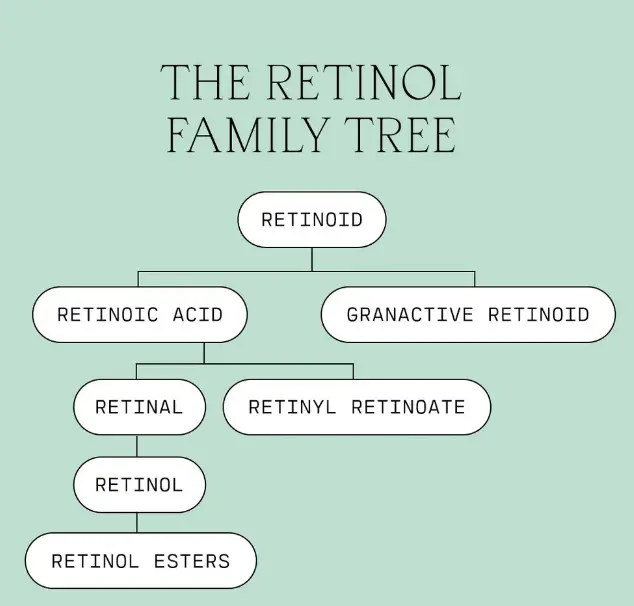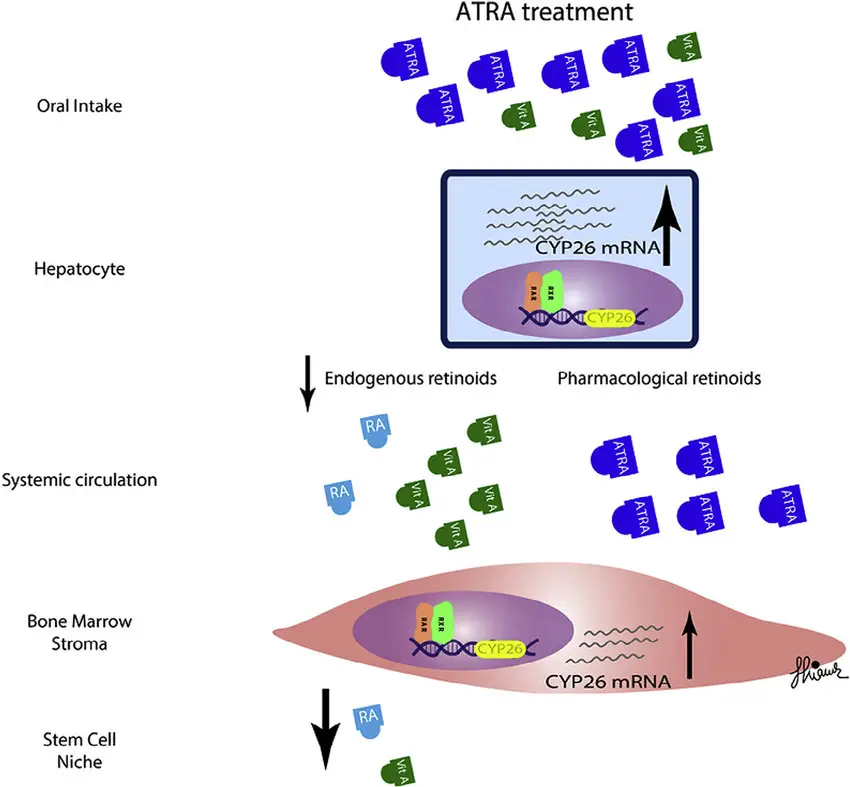The skincare market is saturated with a myriad of ingredients promising miraculous benefits, among which retinoids and retinol are prominent. These terms are frequently mentioned in discussions about anti-aging and acne treatment, but their differences are often unclear to consumers. Both ingredients are derived from vitamin A and are celebrated for their transformative effects on the skin, yet they cater to different needs and skin types.
Retinoids are a class of compounds that encompass retinol as a variant, but with a stronger effect due to their different chemical compositions. Retinoids are typically prescribed by dermatologists and are known for their potent ability to combat severe acne and reduce signs of aging. On the other hand, retinol is available over the counter and is suited for milder skin concerns, offering slower, albeit effective, results with less irritation.
Understanding the nuances between these two can significantly enhance your skincare routine. While retinoids deliver quick results suitable for more resilient skin, retinol is ideal for those seeking gradual improvement and is generally better tolerated by sensitive skin types.

Retinoid Basics
What Are Retinoids?
Retinoids are powerful derivatives of vitamin A, known primarily for their transformative effects on the skin. These compounds are pivotal in treating a range of skin conditions due to their profound ability to modify cellular behavior. By interacting with retinoid receptors in the skin, they boost cell turnover, enhance collagen production, and decrease sebum production.
Types of Retinoids
Retinoids come in various forms, each with its own potency and purposes. The main types include:
- Retinoic Acid: Often prescribed by dermatologists, this is the most potent form, typically found in treatments for severe acne and aging.
- Isotretinoin: Known commercially as Accutane, this is used for severe cases of acne.
- Tretinoin: Used in many prescription topical treatments for both acne and aging.
- Adapalene: Slightly milder than tretinoin and available over the counter for treating acne.
- Retinaldehyde: A less aggressive option that converts to retinoic acid on the skin, used for sensitive skin types.
Primary Uses in Skin Care
Retinoids are primarily used in skincare for:
- Anti-aging: They reduce wrinkles and fine lines by enhancing collagen production.
- Acne treatment: They clear pores and reduce the severity of acne.
- Skin texture: Improve overall skin texture and tone by promoting rapid cell turnover.
Retinol Explained
Definition of Retinol
Retinol is a type of retinoid that is less potent and can be purchased over the counter. It converts into retinoic acid, the active form of the molecule, once applied to the skin. This makes it a popular choice for those looking for significant skincare benefits without the harsher side effects associated with stronger retinoids.
How Retinol Works
Retinol works by penetrating deep into the skin to speed up cell renewal, mimicking younger skin behavior. This process helps to:
- Smooth wrinkles: By promoting collagen and elastin production.
- Enhance skin tone: By shedding pigmented and rough skin layers.
- Clear acne: By preventing pore-clogging and reducing inflammation.
Common Products and Concentrations
Retinol is available in various skincare products such as:
- Serums and creams: Typically ranging from 0.1% to 1% retinol, suitable for nightly use.
- Encapsulated retinol formulations: Designed to release slowly, reducing irritation.
- High-strength retinols: Used for targeted treatments but may require adaptation time for the skin.

Key Differences
Chemical Structure
The primary difference between retinoids and retinol lies in their chemical structure. Retinol is an entire vitamin A molecule, which needs to convert into retinoic acid after application to be effective. Retinoids such as tretinoin are already in the active form (retinoic acid), allowing them to work more directly and quickly.
Potency Levels
- Retinoids: These are more potent and provide faster results. They are primarily available through prescriptions.
- Retinol: It is milder and works more gradually, making it accessible without a prescription and suitable for those with sensitive skin or first-time users.
Side Effects Comparison
- Retinoids: More likely to cause irritation, redness, and peeling, especially in the initial stages of use.
- Retinol: While it can also cause side effects, they are typically less severe and often subside as the skin adjusts to treatment.

Usage Guidelines
Proper Application of Retinoids
To maximize the benefits while minimizing the risk of irritation from retinoids, follow these steps:
- Start slowly: Begin with applications twice a week, gradually increasing frequency as your skin adapts.
- Small amounts: A pea-sized amount is sufficient for the entire face.
- Night time use: Apply retinoids at night as they can increase sun sensitivity.
- Follow with moisturizer: To reduce irritation, apply a moisturizer after the retinoid has absorbed into the skin.
Retinol Usage Tips
For effective use of retinol with minimal side effects, consider these guidelines:
- Patch test: Before starting regular use, apply a small amount on your skin to check for any adverse reactions.
- Incremental introduction: Introduce retinol slowly into your skincare routine, starting with lower concentrations.
- Combine wisely: Avoid using with other potentially irritating ingredients like benzoyl peroxide or alpha hydroxy acids.
Safety and Precautions
- Sun protection: Always use a broad-spectrum sunscreen during the day as retinoids can make your skin more sensitive to the sun.
- Avoid during pregnancy: Retinoids are not recommended for use during pregnancy or breastfeeding.
- Monitor skin response: Be aware of your skin’s reaction and adjust usage if excessive dryness or irritation occurs.
Benefits for Skin
Anti-Aging Effects
Retinoids and retinol are renowned for their ability to:
- Reduce fine lines and wrinkles by promoting collagen production.
- Improve skin firmness through increased cell turnover and regeneration.
- Fade age spots and even out skin pigmentation for a more youthful appearance.
Acne and Blemish Control
Both retinoids and retinol help clear acne by:
- Unclogging pores: They promote faster cell turnover, preventing dead cells from clogging pores.
- Reducing inflammation: Their anti-inflammatory properties help reduce the redness and swelling associated with acne.
Skin Texture Improvements
Regular use can enhance skin texture by:
- Smoothing rough patches and reducing flaky areas through accelerated exfoliation.
- Refining pores for a smoother, more refined skin surface.
Choosing Between Them
Factors to Consider
When deciding between retinoids and retinol, consider:
- Severity of skin issues: More severe acne and signs of aging may benefit from the stronger effects of prescription retinoids.
- Skin sensitivity: Those with sensitive skin may prefer the gentler nature of retinol.
Skin Type Suitability
- Oily and acne-prone skin: Stronger retinoids may be beneficial.
- Dry or sensitive skin: Lower concentrations of retinol are advisable to start with.
Product Recommendations
- For beginners: Look for over-the-counter retinol creams with lower concentrations.
- For advanced users: Explore prescription retinoids like tretinoin for more significant concerns.
Common Misunderstandings
Efficacy Myths
- Immediate results: Both retinoids and retinol require time to show effects. Patience is key as skin adjusts and improvements appear gradually.
- Higher strength equals better results: Not necessarily; higher concentrations can lead to more side effects without increased benefits.
Safety Concerns
- Skin damage: When used correctly, retinoids and retinol do not cause harmful long-term effects but can temporarily irritate the skin.
- Universal suitability: Not everyone may tolerate these ingredients well; it’s important to tailor the choice to your skin’s needs and reactions.
Frequently Asked Questions
What are Retinoids?
Retinoids are potent derivatives of Vitamin A used primarily in dermatology to treat acne, reduce wrinkles, and improve skin texture. They are available mostly through prescriptions due to their strong effects and potential side effects.
How does Retinol differ from Retinoids?
Retinol is a specific type of retinoid that is less potent and available over the counter. It converts into retinoic acid in the skin at a slower rate, which makes it less irritating and suitable for sensitive skin or beginners.
Can Retinol help with acne?
Yes, retinol can help treat acne by promoting cell turnover and preventing the clogging of pores. Its efficacy is milder compared to prescription-strength retinoids, making it a good starting point for those new to retinoids.
Is Retinol safe for all skin types?
While retinol is generally safe for most skin types, it can cause dryness, redness, and peeling, particularly when first starting the treatment. It’s important to start with a low concentration and gradually increase as your skin adapitates.
Conclusion
The choice between retinoid and retinol hinges on individual skin concerns, tolerance, and the desired speed of results. Retinoids are best suited for those with more severe skin issues and a need for rapid improvement, while retinol serves well for ongoing, gentle skin rejuvenation.
Incorporating either into your skincare routine requires patience and an understanding of your skin’s needs and reactions. With careful selection and proper application, both retinoids and retinol can significantly improve skin health and appearance, making them valuable tools in your skincare arsenal.

